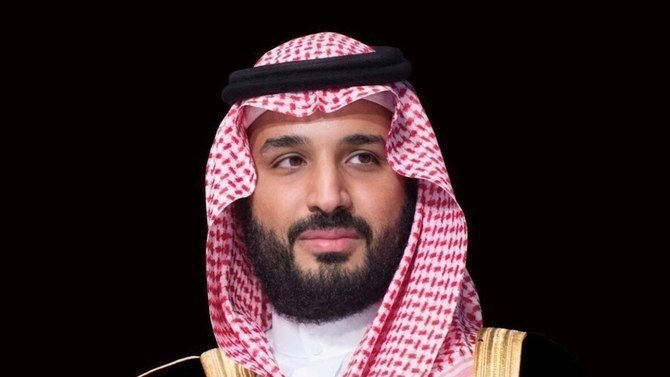RIYADH: Saudi Crown Prince Mohammed bin Salman called for global collaboration to help build a more resilient and integrated global economy on Sunday.
Speaking during a special dialogue session at the World Economic Forum’s Special Meeting in Riyadh, the crown prince discussed the current geopolitical and economic challenges facing the world, Saudi Press Agency reported.
He affirmed the Kingdom’s commitment to acting as a stabilizing force in the region and said that cohesion and cooperation with regional and global partners is the key to achieving security and prosperity.
Saudi Arabia has created diverse opportunities for regional and global investors by building on decades of robust growth fueled by its energy exports, the crown prince said.
He also highlighted the Kingdom’s achievements under Saudi Vision 2030, noting that the Kingdom continues to create transformative investment opportunities in emerging sectors across its evolving economy.
At the special session attended by government officials, business leaders, and academics, the crown prince discussed the comprehensive set of reforms implemented in the Kingdom over the course of the last eight years to enable the private sector to become an engine of growth. He said the growth of the Kingdom’s Public Investment Fund and its intent to become a trillion-dollar sovereign wealth fund was an example of this.
Discussing Saudi Arabia’s rapidly diversifying economy, the crown prince said non-oil economic activity in Saudi Arabia contributed 50 percent to the Kingdom’s gross domestic product in 2023, the highest level ever.
He emphasized the importance of investing in research and development, noting that such investment has propelled the growth of national giants including ACWA Power, Ceer Motors, and Alat.
This creates a foundation for these companies to embed emerging technologies into their business models and further the growth of the sector in the Kingdom, the crown prince said. He added that this has contributed to the rapid growth of the Kingdom’s digital economy, at a rate three times faster than the global growth rate.
He also highlighted how Saudi Vision 2030 has created a flourishing civil society and brought about vast improvements to quality of life and social mobility and inclusion, with women’s participation in the workforce having doubled since 2016.
Working with global partners, Saudi Arabia is building an economy of the future based on innovation, growth, and opportunity, Prince Mohammed said.He ended by saying Saudi Vision 2030 is a journey, not a destination, and that although the Kingdom has made significant strides, there is still much more to do.
The special meeting of the World Economic Forum in Riyadh ended on Monday evening.



























